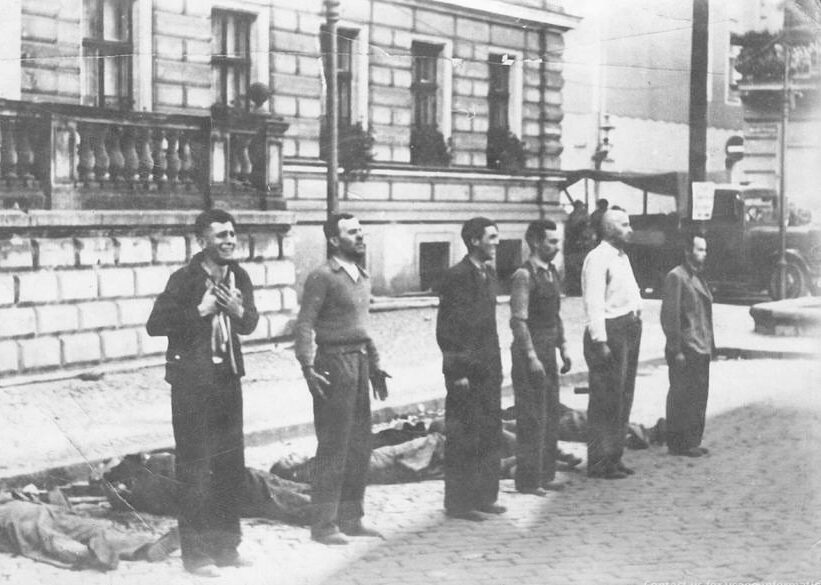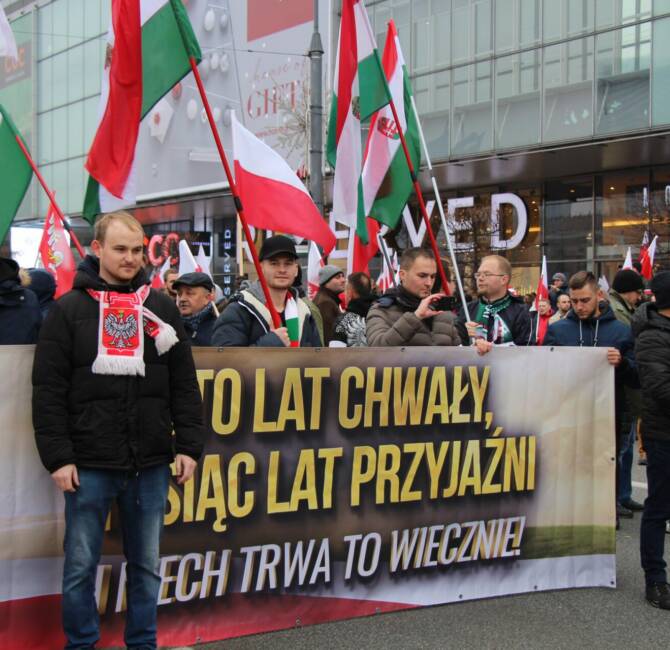“43% of Poland’s historic buildings were destroyed or damaged. In Warsaw, it was as much as 92%. I think that to illustrate the scale of destruction, the example of our capital is the best. Before the war, it had a population of about 1,300,000, while in 1945, when Soviet troops entered it, there were about 200 (!) inhabitants left, the so-called Robinsons, who were hiding in the ruins. It was a city of ruins” – says prof. Konrad Wnęk, Director of the Jan Karski Institute for War Losses, historian and professor at Jagiellonian University.
Radosław Wojtas :The term Holocaust is known all over the world. Just as it is common knowledge around the world that Germany under the dictatorship of Adolf Hitler sought to physically eliminate the Jews. But the knowledge that during World War II, out of all European countries, it was Poland that suffered the greatest, personal and material losses in relation to total population and national assets is not so common. Before we get to the numbers, which are striking, let’s consider whether in the German plan the Polish nation was also to cease to exist? Especially in the context of Joseph Goebbels’ words uttered on the eve of World War II: “Take away a nation’s culture and it will cease to exist as a nation.”
Konrad Wnęk : This, naturally, was part of the plans the Germans implemented from the very beginning, from the first days of September 1939. When they occupied Polish territory, they already had a list of people who had to be arrested, placed in concentration camps. These were representatives of the Polish intelligentsia, including people of culture and science. Suffice it to mention here, for example, the most famous such action, which echoed throughout Europe, the arrest of professors of the Jagiellonian University and the Mining Academy. The liquidation of the Polish intellectual elite continued from the very beginning of the war.

Radosław Wojtas :And also the destruction of our cultural heritage.
Konrad Wnęk : In this regard, there were multiple courses of action, and these actions were perfectly planned and can be said to have been carried out with German precision. First, representatives of the cultural elite were arrested or murdered, but, as I have already mentioned, also elites of many other fields – people of science, politicians, social activists, clergy. There is such a concept as “eliticide” and Poland was a victim of eliticide. Germany’s problem with the Poles was that there were too many of us. It was not possible to murder all of us in 5-6 years, as was planned and implemented in the case of the Jews. Therefore, Polish society was treated somewhat differently from the beginning. We were deprived of our elites, our culture, our roots, so that we could later be turned into an army of farmhands, slaves who could serve the German masters. What fate would await us later? It’s not entirely clear. If the so-called Master Plan for the East, or Generalplan Ost, had been implemented…
Read the full article on Sovereignty.pl
Prof. Konrad Wnęk is a historian, Director of the Jan Karski Institute for War Losses and professor at Jagiellonian University.




